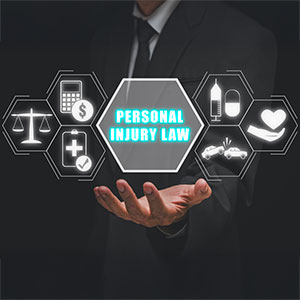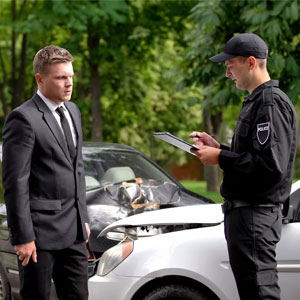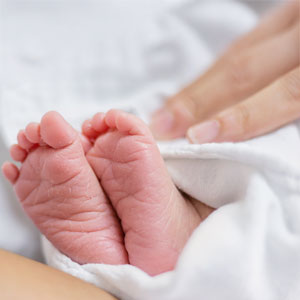Steps, Common Claims, And Legal Dynamics Of Premises Liability Claims In Central Florida
BlogWhen filing a premises liability claim in Central Florida, where slip-and-fall incidents frequently occur, you’ll likely face one of several common circumstances. Read on to explore some crucial steps, including:
- Common premises liability claims.
- What you should do after suffering a slip-and-fall.
- How to understand comparative fault in relation to your slip-and-fall case.
What Types Of Accidents Fall Under Premises Liability In Central Florida?
Common premises liability injury claims in Florida include:
- Slip-and-falls
- Trip-and-falls
- General property negligence
- And more…
These occur on property belonging to a third party – often a business. Premises liability involves general negligence on the property which includes unreasonably dangerous conditions due to the owner’s failure to clean up a mess or fix something that is broken. It can also be the owner’s failure to design the property in a way that avoids hazards or a failure to warn others of a known danger.
What Should I Do After A Slip-And-Fall Accident? What Information Is Critical To Gather For A Premises Liability Claim?
In the aftermath of a slip-and-fall accident, the most important thing you can do is to document the scene, as long as doing so does not put you in more harm or danger. Take photographs of the surrounding conditions or hazards that led to your fall. If possible, take pictures of your shoes and clothing to provide visual evidence clearly showing the circumstances surrounding the incident.
Pay close attention to any substances, especially liquids, on your clothing. Note and document these elements, as they may serve as critical evidence in establishing the cause of the fall. Identifying damages to your personal belongings strengthens your case when pursuing a premises liability claim.
Always make an incident report to the owner or occupant of the property where the accident occurred. Promptly reporting the incident ensures that there is an official record of the occurrence. Provide a detailed account of the incident, including the time, date, and circumstances leading to the fall. If possible, obtain a copy of the incident report for your records.
Seek medical treatment for your injuries as soon as possible. If you are injured to the point where you cannot formally file an incident report with the property owner, your medical records will serve as proof of your injury. Timely reporting strengthens your position in a premises liability claim, establishing a clear connection between the fall and the injuries sustained.
After addressing these pressing concerns, consider seeking legal help. A premises liability attorney can guide you on the next steps, assess the viability of your claim, and assist in navigating the complexities of pursuing compensation.
Can An Injured Person Be Partially At Fault For A Slip-And-Fall Or Trip-And-Fall Incident? How Might That Impact A Case?
Many argue that every slip-and-fall case carries an element of comparative fault. This arises because others exercise caution in the same circumstances and do not suffer injury as a result.
For instance, in the case of water on the floor in a grocery store, not everyone will slip or fall. Some might step in the water without falling, while others may avoid it altogether. Comparative fault, in this context, serves one purpose – to reduce the defendant’s liability.
What Information And Evidence Will My Attorney Need To Start My Premises Liability Case In Florida?
Laying a solid foundation for a slip-and-fall claim in Florida begins with retrieving any photographs taken of the scene, as well as other important details of the incident. Capturing visual evidence, such as surveillance video, and outlining the specifics of the event are vital. Accessing such footage might necessitate legal steps, including subpoenas, especially after filing a lawsuit.
An attorney plays a crucial role in preserving essential evidence for your slip-and-fall claim. Making a formal request to the defendant to preserve evidence is a standard practice and for good reason. Preserving evidence ensures it is available to be examined during proceedings.
Who Is Potentially Liable For A Slip-And-Fall Or Trip-And-Fall Incident Involving An Injury?
Most slip-and-fall cases involve a lawsuit against the owner or operator of a business for negligence. It is also possible to sue a homeowner for a slip-and-fall caused by negligence; however, additional factors come into play in these cases, such as whether the injured person is an invitee or trespasser.
What Determines Whether Or Not A Property Owner Will Be Held Liable?
The most pivotal factor in holding a property owner accountable for a slip-and-fall incident is having an unreasonably dangerous condition on the property. The mere occurrence of a slip-and-fall is not sufficient for liability; before a court of law, a claim’s legitimacy hinges on whether the property owner acted negligently or allowed a dangerous condition to persist and the credibility of the plaintiff.
The duration for which the hazardous condition existed on the property is also a contributing factor. An exceptionally prolonged presence of a dangerous condition may heighten the property owner’s responsibility, emphasizing the need for timely remediation.
Whether others have suffered injury on the property due to the same reason is another key aspect in determining these cases. A pattern of similar incidents could underscore a recurring hazard, potentially strengthening the case for property owner liability.
Finally, the availability of reasonable alternatives or viable repair options to address the unreasonably dangerous condition is considered. Property owners are expected to take appropriate measures to rectify hazards, and the feasibility of such measures plays a role in determining liability.
What Should I Do If I Suffered A Serious Injury At A Friend’s Home In Central Florida And I Don’t Want To Sue Them?
Most slip-and-fall cases are settled out of court. Even if you do not want to file a lawsuit for your injury, it is nevertheless still best to have a personal injury attorney try to get the best settlement possible for you. Your attorney will help determine the relative strengths and weaknesses of your case based on the facts and circumstances, then move your case in the direction of obtaining the results you deserve.
For more information on Premises Liability Injury Claims In Florida, a free initial consultation is your next best step. Get the information and legal answers you are seeking by calling (863) 243-6166 today.


